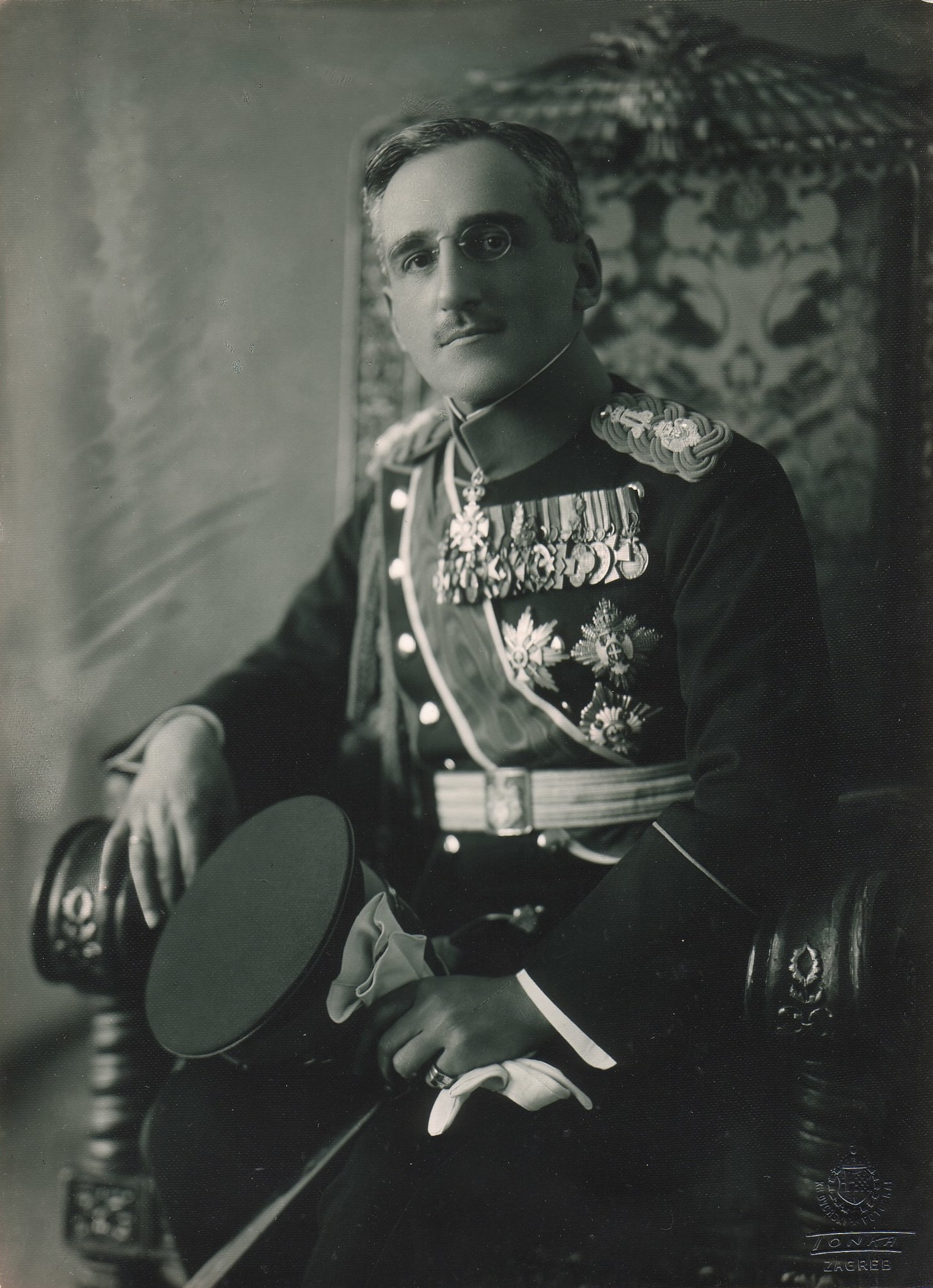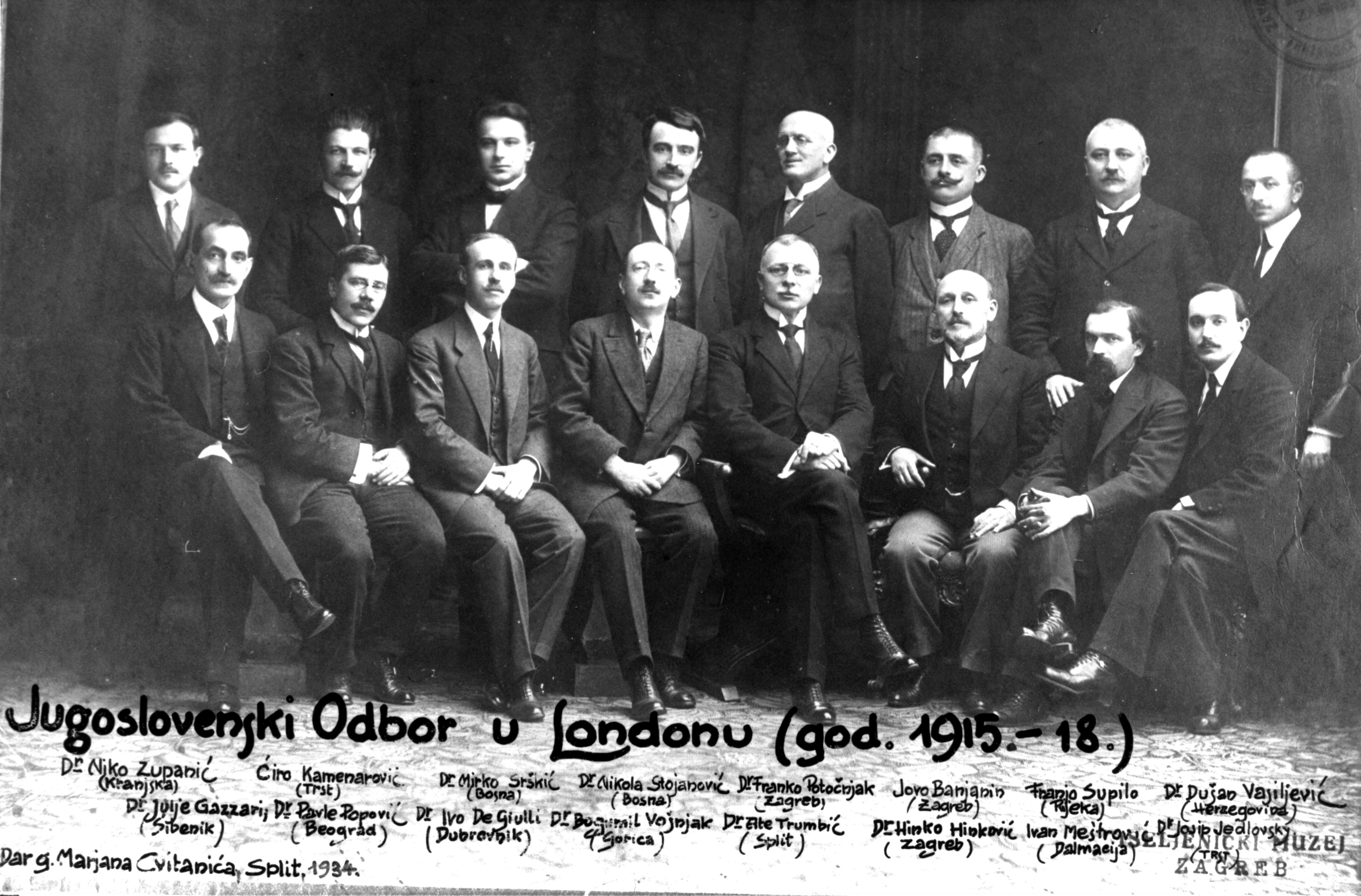|
Dinko Trinajstić
Dinko Trinajstić ( Vrbnik, 9 October 1858 – Crikvenica, 27 February 1939) was a lawyer and Croatian and Yugoslavian politician. He was a member of the Party of Rights and supporter of Yugoslavist ideas advocated by bishop Josip Juraj Strossmayer. Trinajstić studied law in Vienna, Zagreb, and Graz before attaining the doctoral degree in law. He practised in the law firm of his uncle, in Krk. In 1894, he moved to Pazin in Istria where he practised law and was elected mayor in 1895–1898 and a member of the Diet of Istria in 1895–1910. In 1895, Trinajstić established a branch of the building society in Pazin and ran it. In 1902, Trinajstić took part (as vice-president) in establishment and running of the Political Society for Croats and Slovenes in Istria aimed at enhancing cooperation with Slovene Trieste-based Edinost society and subsequent establishment of the . In 1915, after beginning of the World War I, Trinajstić left the country and joined the Yugoslav Commi ... [...More Info...] [...Related Items...] OR: [Wikipedia] [Google] [Baidu] |
Vrbnik
Vrbnik is a village and a municipality on the east coast of the island of Krk. The village is perched on a limestone outcropping 50 m above the Adriatic Sea. Vrbnik is naturally separated from mainland Croatia by the Vinodol Channel, where the towns of Crikvenica and Novi Vinodolski can be observed across the sea. Since 1980 the island has been connected to mainland Croatia via the Krk Bridge. Vrbnik has a long history of 900 years, it was an important Frankopan castle, and a Glagolitic and religious center. Originally a walled town, Vrbnik was established in medieval times. According to the 2021 census, the settlement of Vrbnik itself has a population of 887 with a total of 1,190 people in the municipality, which includes three other nearby settlements; Garica with 138 inhabitants, Kampelje with 11 inhabitants and Risika with 154 inhabitants. Culture The Vrbnik Statute () was written in 1388 and confirms the status of Vrbnik as an administrative and political center. ... [...More Info...] [...Related Items...] OR: [Wikipedia] [Google] [Baidu] |
Building Society
A building society is a financial institution owned by its members as a mutual organization, which offers banking institution, banking and related financial services, especially savings and mortgage loan, mortgage lending. They exist in the United Kingdom, Australia and New Zealand, and formerly in Ireland and several Commonwealth countries, including South Africa as mutual banks. They are similar to credit unions, but rather than promoting thrift and offering unsecured and business loans, the purpose of a building society is to provide home mortgages to members. Borrowers and depositors are society members, setting policy and appointing directors on a one-member, one-vote basis. Building societies often provide other retail banking services, such as current accounts, credit cards and personal loans. The term "building society" first arose in the 19th century in Kingdom of Great Britain, Great Britain from cooperative banking, cooperative savings groups. In the United Kingdom, bu ... [...More Info...] [...Related Items...] OR: [Wikipedia] [Google] [Baidu] |
Miroslav Krleža Institute Of Lexicography
The Miroslav Krleža Institute of Lexicography ( or LZMK) is Croatia's national lexicographical institution. Based in Zagreb, it was established in 1950 as the national lexicographical institute of the Socialist Federal Republic of Yugoslavia. It was renamed after its founder, the Croatian writer Miroslav Krleža, in 1983. History The institute was founded in 1950 as the Lexicographical Institute of the Federal People's Republic of Yugoslavia (''Leksikografski zavod FNRJ'') and was renamed the Yugoslav Lexicographical Institute (''Jugoslavenski leksikografski zavod'', ''JLZ'') in 1962. The institution was originally established as a federal body under de facto responsibility of the Federal Executive Council while its “founding rights” were relegated to the Socialist Republic of Croatia in 1970s. Its longtime director was writer Miroslav Krleža, with Mate Ujević as the chief editor. It was based in Zagreb, with branches in Ljubljana and Belgrade. The office in Belgra ... [...More Info...] [...Related Items...] OR: [Wikipedia] [Google] [Baidu] |
Croatian Encyclopedia
The ''Croatian Encyclopedia'' () is a Croatian general encyclopedia An encyclopedia is a reference work or compendium providing summaries of knowledge, either general or special, in a particular field or discipline. Encyclopedias are divided into article (publishing), articles or entries that are arranged Alp ... (with the national component), published in 1999–2009 by the Miroslav Krleža Institute of Lexicography. Overview The project began in 1999, and it represents a fifth iteration of the encyclopedic tradition that was established by Mate Ujević's ''Croatian Encyclopedia'', and continued in the '' Encyclopedia of the Lexicographical Institute'', as well as the two editions of its ''General Encyclopedia''. Eleven volumes were published in the period 1999–2009, with a new volume appearing every year. It is named "Croatian" encyclopedia (colloquially ''Croatica'') in the tradition of general-knowledge encyclopedias as ''Britannica''. Online edition The f ... [...More Info...] [...Related Items...] OR: [Wikipedia] [Google] [Baidu] |
Assembly Of Yugoslavia
The Parliament of Yugoslavia was the legislature of Yugoslavia. Before World War II in the Kingdom of Yugoslavia it was known as the National Assembly (''Narodna skupština''), while in the Socialist Federal Republic of Yugoslavia the name was changed to Federal Assembly ( sh-Latn-Cyrl, separator=/, Savezna skupština, Савезна скупштина). It functioned from 1920 to 1992 and resided in the building of the House of the National Assembly which subsequently served as the seat of the Parliament of Serbia and Montenegro and since 2006 hosts the National Assembly of Serbia. Kingdom The first parliamentary body of the state was the Temporary National Representation which existed until the first elections were held on 28 November 1920. The new parliament was known as the Constitutional Assembly. The assembly adopted the Vidovdan Constitution on 28 June 1921, after which it became known as the National Assembly. After the end of the January 6th Dictatorship, in 1931 the ... [...More Info...] [...Related Items...] OR: [Wikipedia] [Google] [Baidu] |
Kingdom Of Italy
The Kingdom of Italy (, ) was a unitary state that existed from 17 March 1861, when Victor Emmanuel II of Kingdom of Sardinia, Sardinia was proclamation of the Kingdom of Italy, proclaimed King of Italy, until 10 June 1946, when the monarchy was abolished, following civil discontent that led to an 1946 Italian institutional referendum, institutional referendum on 2 June 1946. This resulted in a modern Italian Republic. The kingdom was established through the unification of several states over a decades-long process, called the . That process was influenced by the House of Savoy, Savoy-led Kingdom of Sardinia (1720–1861), Kingdom of Sardinia, which was one of Italy's legal Succession of states, predecessor states. In 1866, Italy Third Italian War of Independence, declared war on Austrian Empire, Austria in Italo-Prussian Alliance, alliance with Kingdom of Prussia, Prussia and, upon its victory, received the region of Veneto. Italian troops Capture of Rome, entered Rome in 1870, ... [...More Info...] [...Related Items...] OR: [Wikipedia] [Google] [Baidu] |
Treaty Of Rapallo (1920)
The Treaty of Rapallo was an agreement between the Kingdom of Italy and the Kingdom of Serbs, Croats and Slovenes in the aftermath of the First World War. It was intended to settle the Adriatic question, which referred to Italian claims over territories promised to the country in return for its entry into the war against Austria-Hungary, claims that were made on the basis of the 1915 Treaty of London. The wartime pact promised Italy large areas of the eastern Adriatic. The treaty, signed on 12 November 1920 in Rapallo, Italy, generally redeemed the promises of territorial gains in the former Austrian Littoral by awarding Italy territories generally corresponding to the peninsula of Istria and the former Princely County of Gorizia and Gradisca, with the addition of the Snežnik Plateau, in addition to what was promised by the London treaty. The articles regarding Dalmatia were largely ignored. Instead, in Dalmatia, Italy received the city of Zadar and several islands. Othe ... [...More Info...] [...Related Items...] OR: [Wikipedia] [Google] [Baidu] |
Temporary National Representation
The Temporary National Representation (), also the Interim National Legislation and the Interim National Parliament, was the first legislative body established in the Kingdom of Serbs, Croats and Slovenes. It was created by the decree of Prince Regent Alexander on 24 February 1919, and convened on 1 March. Its 294 members were appointed by various provincial and regional assemblies or commissions. The main product of its work was the act regulating the election of the Constitutional Assembly. The body's work ceased after the election held on 28 November 1920. The seats in the Temporary National Representation were distributed by province and then assigned to various political parties depending on their representation in provincial and regional legislative bodies prior to the establishment of the Kingdom of Serbs, Croats and Slovenes. The greatest number of seats were assigned to the Democratic Party and the People's Radical Party. The largest traditionally Slovene politica ... [...More Info...] [...Related Items...] OR: [Wikipedia] [Google] [Baidu] |
Kingdom Of Serbs, Croats And Slovenes
The Kingdom of Yugoslavia was a country in Southeast and Central Europe that existed from 1918 until 1941. From 1918 to 1929, it was officially called the Kingdom of Serbs, Croats, and Slovenes, but the term "Yugoslavia" () has been its colloquial name as early as 1922 due to its origins. "Kraljevina Jugoslavija! Novi naziv naše države. No, mi smo itak med seboj vedno dejali Jugoslavija, četudi je bilo na vseh uradnih listih Kraljevina Srbov, Hrvatov in Slovencev. In tudi drugi narodi, kakor Nemci in Francozi, so pisali že prej v svojih listih mnogo o Jugoslaviji. 3. oktobra, ko je kralj Aleksander podpisal "Zakon o nazivu in razdelitvi kraljevine na upravna območja", pa je bil naslov kraljevine Srbov, Hrvatov in Slovencev za vedno izbrisan." (Naš rod ("Our Generation", a monthly Slovene language periodical), Ljubljana 1929/30, št. 1, str. 22, letnik I.) The official name of the state was changed to "Kingdom of Yugoslavia" by King Alexander I on 3 October 1929. The pre ... [...More Info...] [...Related Items...] OR: [Wikipedia] [Google] [Baidu] |
Ante Trumbić
Ante Trumbić (17 May 1864 – 17 November 1938) was a Yugoslav and Croatian lawyer and politician in the early 20th century. Biography Trumbić was born in Split in the Austrian crownland of Dalmatia and studied law at Zagreb, Vienna and Graz (with doctorate in 1890). He practiced as a lawyer, and then, from 1905 as the city mayor of Split. Trumbić was in favor of moderate reforms in Austro-Hungarian Slavic provinces. That included the unification of Dalmatia with Croatia-Slavonia demanded by the Trumbić helped draw up. After the assassination in Sarajevo of Archduke Franz Ferdinand and the invasion of Serbia by Austria-Hungary, Trumbić became the prominent Yugoslav nationalist leader during World War I, and led the Yugoslav Committee that lobbied the Allies to support the creation of an independent Yugoslavia.Spencer Tucker. ''Encyclopedia of World War I: A Political, Social, and Military History''. Santa Barbara, California, USA: ABC-CLIO, 2005. pp. 1189. Trumbi� ... [...More Info...] [...Related Items...] OR: [Wikipedia] [Google] [Baidu] |
Yugoslav Committee
The Yugoslav Committee (, , ) was a World War I-era, unelected, '' ad-hoc'' committee. It largely consisted of émigré Croat, Slovene, and Bosnian Serb politicians and political activists whose aim was the detachment of Austro-Hungarian lands inhabited by South Slavs and unification of those lands with the Kingdom of Serbia. The group was formally established in 1915 and last met in 1919, shortly after the breakup of Austria-Hungary and the establishment of the Kingdom of Serbs, Croats and Slovenes, which was later renamed Yugoslavia. The Yugoslav Committee was led by its president, the Croat lawyer Ante Trumbić, and, until 1916, by Croat politician Frano Supilo as its vice president. The members of the Yugoslav Committee had different positions on topics such as the method of unification, the desired system of government, and the constitution of the proposed union state. The bulk of the committee members espoused various forms of Yugoslavism – advocating for eith ... [...More Info...] [...Related Items...] OR: [Wikipedia] [Google] [Baidu] |




